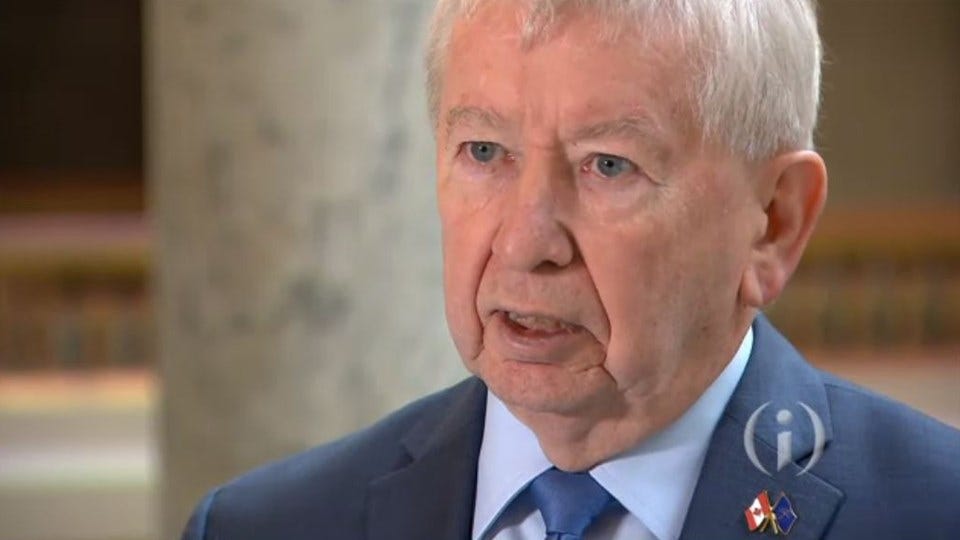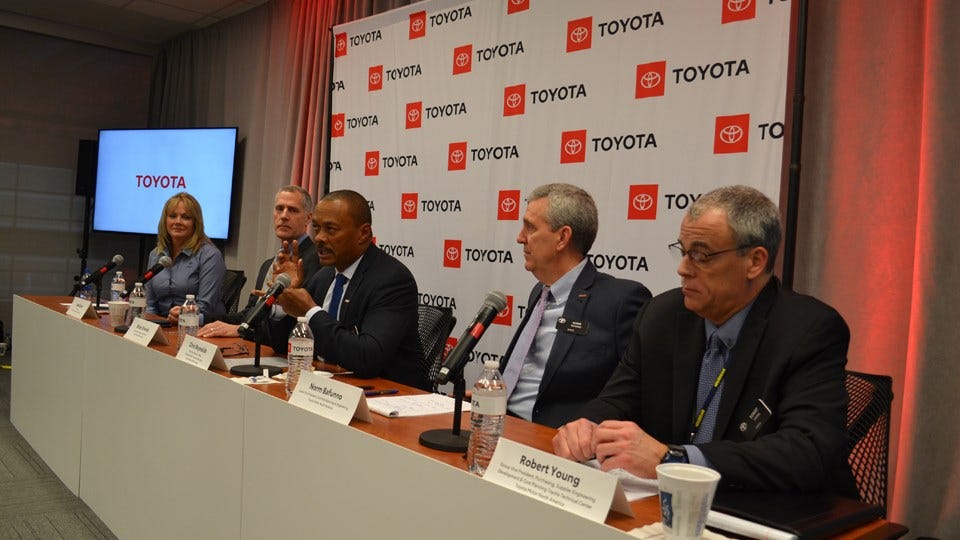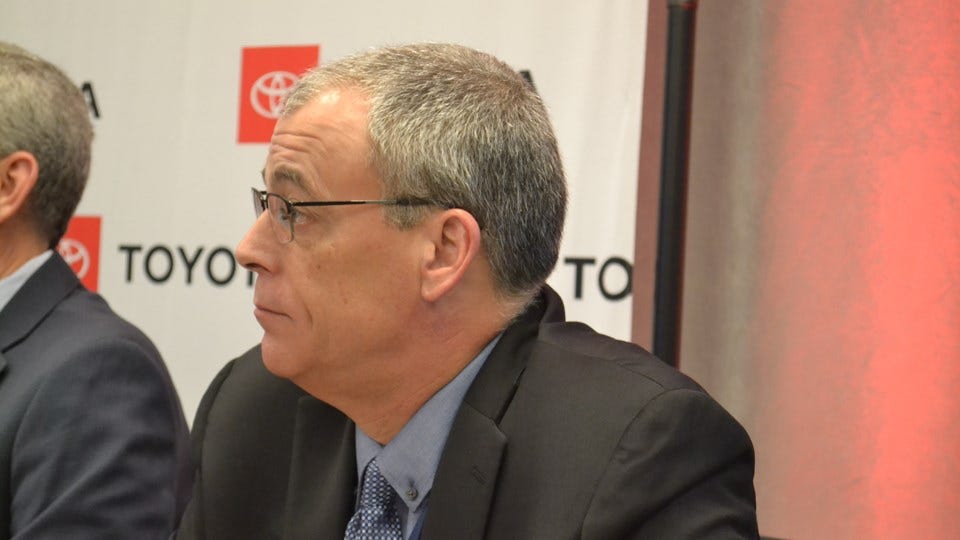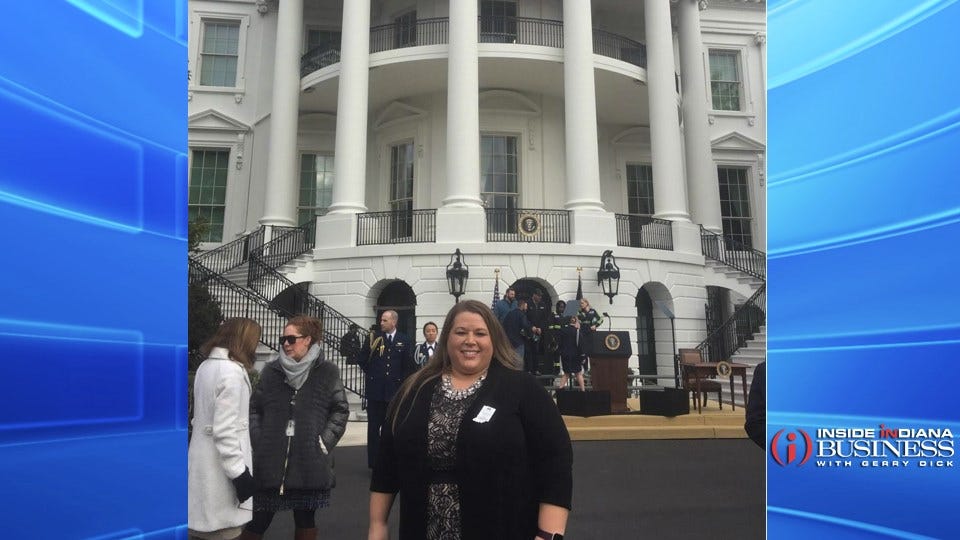Hoosiers, Canadians Welcome USMCA
Subscriber Benefit
As a subscriber you can listen to articles at work, in the car, or while you work out. Subscribe NowIndiana farm groups, state leaders and some manufacturers are celebrating the signing of the U.S-Mexico-Canada trade agreement, calling it a “win” for the Hoosier state.
President Trump signed the USMCA Wednesday, the second major trade deal signed by the President within a month.
The event marks a significant accomplishment for Trump during his first term in office, fulfilling a major campaign promise to replace the North American Free Trade Agreement. The agreement has already been ratified by Mexico, but not yet by Canada’s legislature.
Indiana Farm Bureau’s Deidra Gottbrath attended the signing ceremony at the White House. She serves as state chair of the INFB’s Young Farmer & Ag Professionals committee and farms in Washington County.
“Healthy trade relationships with our neighboring countries are essential for the success of Indiana farm families, like mine in Washington County,” said Gottbrath. “Of course, it will take time for new deals to go into effect which will result in increased sales for farmers, but we’re hopeful that in the end, this agreement will increase exports for farmers in Indiana and across the country.”
The office of Lieutenant Governor Suzanne Crouch estimates the state’s annual trade with Canada and Mexico at approximately $18.8 billion, a majority of that going to our neighbors to the north.
“I applaud President Trump for getting the job done and making good on his promise to put Hoosiers, our workers, farmers, and job-creators first,” said Crouch. “This historic trade deal will further strengthen Indiana’s relationship with Mexico and Canada by removing tariffs and increasing market access.”
From Canada’s perspective, the key now is putting the new rules into practice.
“A bit of caution that the implementation process is going to take a bit of time,” said Joe Comartin, Canada’s Consul General in Detroit, whose region includes Indiana, Michigan, Ohio, and Kentucky. “We’ve done some fairly new things both around labor standards and environmental standards, enforcing that making sure that it’s complied with will require some additional work. I think the next year we’ll see governments on all three borders, working at getting that implementation is as effectively and as efficiently and as quickly as possible.”
Comartin spoke about the USMCA in an interview with Inside INdiana Business Host Gerry Dick at the Indiana Statehouse.
Senator Todd Young (R-IN) says the President’s authorization of the USMCA gives farmers and manufacturers more market certainty to help grow business and create jobs.
“Over 60,000 manufacturing jobs in Indiana are directly tied to trade with our closest neighbors, and our 94,000 farmers will be able to increase exports by $2.2 billion with this historic agreement,” said Young.
Young says he looks forward to the full implementation of the trade deal over the coming months, but the process can take much longer, especially for Indiana’s automakers.
While NAFTA required automakers to use 62.5% of North American-made parts in their cars to be imported duty-free, the USMCA gradually raises the bar to 75% by 2023. That move gives incentive to automakers to increase the amount of North American parts they use in their cars and light trucks.
At the Toyota Motor Manufacturing Indiana plant in Princeton, and at Toyota North America’s corporate headquarters in Texas, the company welcomes the certainty of a completed trade deal.
“From a macro standpoint, it allows us to us and our supplier partners to have some sense of stability,” said Bob Young, group vice president of purchasing and supplies for Toyota North America.
Young was at the Toyota plant in Princeton recently for the unveiling of the 2020 Highlander. He’s responsible for parts for all Toyota plants in North America, including Canada and Mexico.
“We know what the rules are going to be. We know that in some cases, we have to make minor modifications to either the global supply chain or to the global allocation of production to ensure that we meet the USMCA requirements. But in general, we’ve studied very deeply, we feel comfortable, we can meet USMCA requirements.”
Young says suppliers represent 70% of the cost structure in the production of the Toyota Highlander, with 10% of the annual purchase going to Indiana suppliers.
According to the U.S. Trade Representative’s office, Indiana’s total worldwide exports in 2018 registered $39.3 billion of goods with about one-third, $13.4 billion, going to Canada.




